An abducted child reveals the true story of her stolen life, three decades later
Sarah-Cecilie Finkelstein was 13 when she saw her own picture on a missing persons ad. Shocked, she came to realise that she had been abducted by her father as a toddler. Thirty years later, she and her mother are reunited and their story is being told in a new film. Simon Usborne meets the women who missed so much
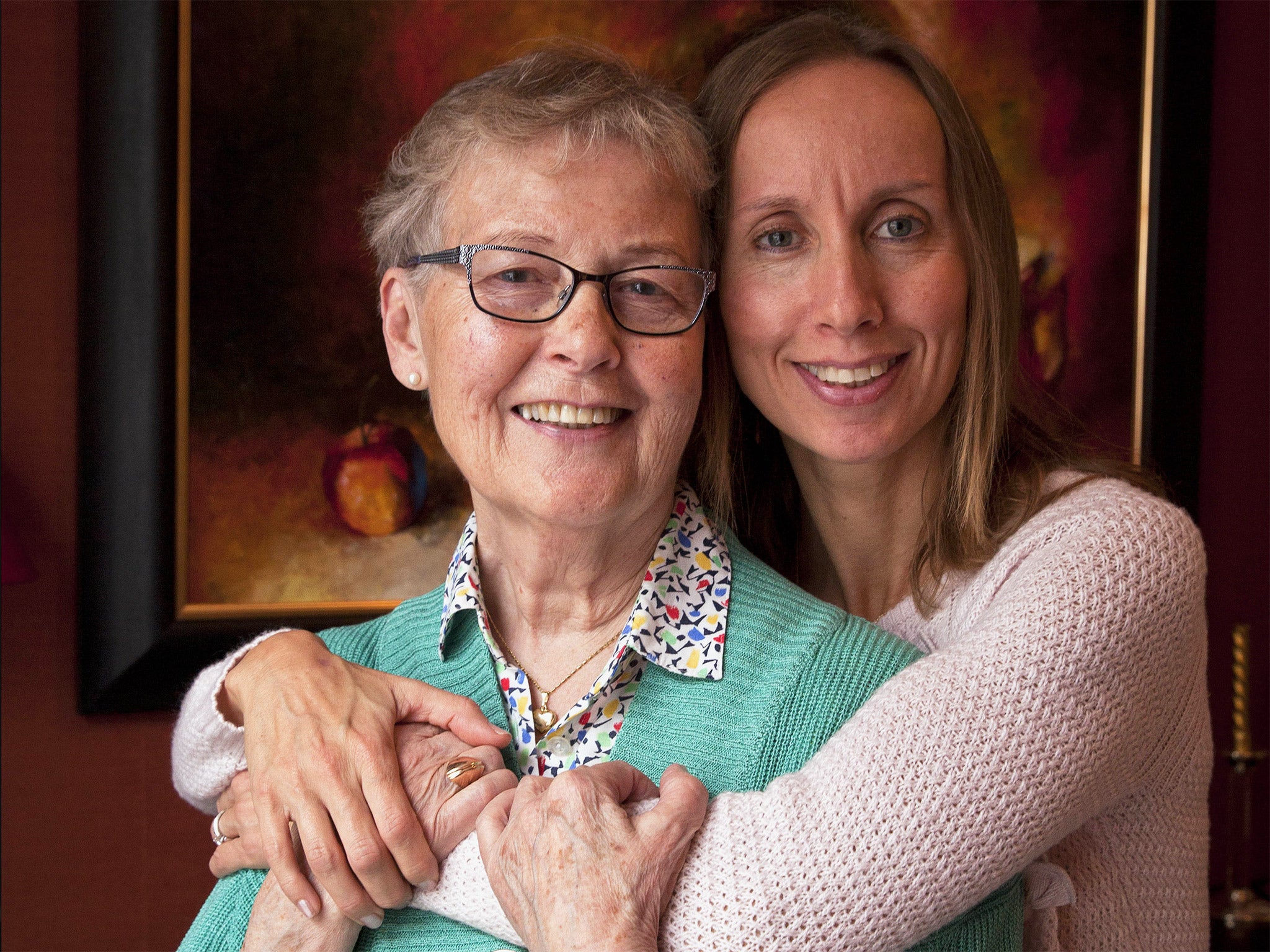
A 13-year-old girl, sitting at a table eating cereal by herself. She doesn’t understand why or how, but she will learn later that she has been a victim of child abuse, abduction and brainwashing. After a childhood on the run, she is entering adolescence in a fog of confusion and fear, and will soon attempt to drown herself. But, on this morning in 1983, she is having breakfast in peace.
She scans the box of Cheerios, before her attention flicks to the milk carton. When she turns it round, the sound of crunching stops. She drops her spoon. “I’d seen pictures of missing kids on milk cartons before, and always thought, ‘oh, how sad – they’re probably already dead’,” Sarah-Cecilie Finkelstein says. “But this time the girl in the picture was me. It was completely shocking, just imagine – it was me.”
She was about six in the photograph, which appeared alongside her birth name – Cecilie Finkelstein. She knew herself as Sarah (or, a few years previously, as Max, a boy she had pretended to be while living in disguise) but she says she looked exactly the same in the picture. The recognition was instant, and shock quickly turned to fear.
In Oslo, her mother was looked on as someone whose child had been taken away. In a way, she says, she was stigmatised
“I got up and took the milk into the bathroom and poured it down the toilet,” she recalls. “I was terrified. I tore the carton into little bits and threw them away, only saving the picture of me.” In those few minutes, the image transformed the way Sarah thought about what was happening to her – and who she was. “I began to realise there must be a mother out there who loved me,” she says. “I realised that I was missing, just like the other kids.”
The last person Sarah wanted to see the photograph was her own father, Herbert Finkelstein. A decade earlier, when she was four, he had abused the good faith of his Norwegian ex-wife, Tone Vik Nerby, and the love of their daughter to steal her away for 13 years. The aftershocks that followed his decision, and a childhood spent on the run, are still being felt on two continents today, and form the basis for a short film featuring all three people in an extraordinary story of misguided love, betrayal, courage and forgiveness.
Sarah-Cecilie has come to London from her home in New York to see the film for the first time with her mother, who lives in Oslo. The charity behind the film – Pact (Parents and Abducted Children Together) – has arranged a screening at the Houses of Parliament, and hopes later to share it more widely. Pact’s founder, Catherine Meyer, whose children from her first marriage were also abducted by their father, has invited Theresa May to introduce the film. As it plays, Sarah-Cecilie and her mother, who is 74, hold hands. Their heads occasionally drop.
“It was very hard to watch,” Nerby says the next morning. “I wanted to dig a hole and just drop into it.” She and her daughter, now 45, have come to Meyer’s house near Sloane Square for their first joint interview. Meyer first met them 15 years ago in Washington, where she founded Pact while her second husband, Sir Christopher Meyer, was the British ambassador to the United States.
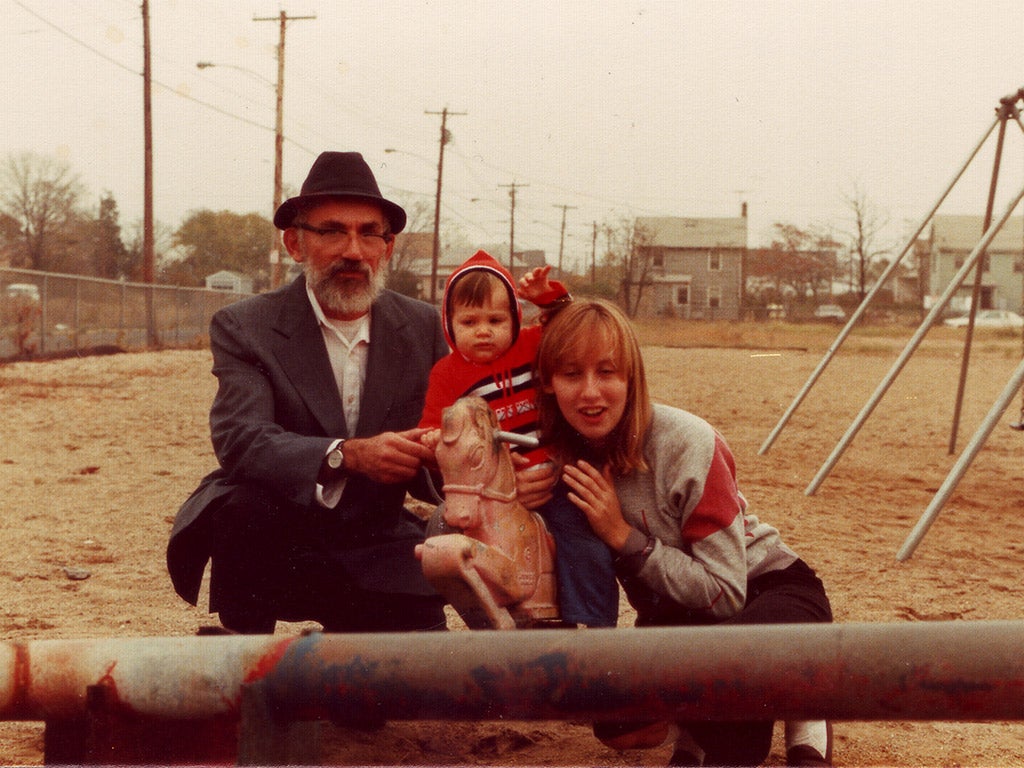
The three women hope that the film will increase awareness of a complex crime that authorities and courts, as well as society, still struggle to deal with.
Sarah-Cecilie’s story starts in Oslo, at Viegeland Park, a landscape of sculptures, many of which feature family scenes set in stone. Herbert, a Jewish chemist from New York, was living in Denmark after the breakdown of his marriage to Nerby. Their relationship had been difficult but “they went to great lengths to make sure I wasn’t pulled apart”, Sarah-Cecilie says. In 1974, he had come to Norway to spend Easter with his ex-wife and daughter.
The trip to the park gave Nerby some time to prepare a traditional Sunday lunch of fish for the family. “I told them to have a good time,” she says. Now a grandmother, she has a voice as soft as the navy cardigan she wears. “The sun was shining, it was beautiful in Oslo that day. But then the time went by. At five o’clock I called the police and asked if there had been an accident … at 6.30, I was thinking … oh, can he? Is it possible that … he took you?”
Frantic calls confirmed Nerby’s fears. She learned that Herbert and Cecilie were already on a flight to New York via London. He had left his suitcase in Norway, and his shaving kit in the bathroom, but had secretly planned the abduction, even travelling to New York weeks earlier on a reconnaissance mission. He wanted to make contacts in the Hasidic Jewish community in which he planned to hide his daughter, and slowly turn her against her own mother in what would become a one-man religious cult.
Nerby had lost her daughter but as she tried to sleep that first night alone, she had no idea how long her nightmare would last. Nor did Cecilie, who, aged four, understood only that she had gone on an adventure with her father. He took her to a basement flat in Brooklyn at the heart of a global Orthodox Jewish community known for welcoming outsiders. “He leeched on to them and said, ‘here I am, I want to be religious. I’ve been wayward and I want to raise this little daughter of mine as a Jew’,” Sarah-Cecilie says.
Nerby, who is Christian by birth, had no role in the new future Herbert saw for himself and his daughter. He cut her off so that they could not be found. There would be no letter or phone call – not a single message to say they were safe. He kept moving, depending on strangers to sustain his deception. Moreover, he slowly, subtly began to turn the memory of a mother into the image of a monster.
First, he told Sarah-Cecilie that she had been abandoned. “Then it got worse,” Sarah-Cecilie recalls. “He would do things like take me to Holocaust survivor conventions and people would tell him it wasn’t appropriate to take a little girl. ‘Oh, she won’t listen, she’ll be fine,’ he told them. But I was listening, and the pain and horrors I heard were so traumatising. My father would say things like, ‘well they [the Nazis] were from northern Europe, you know... and Norway is in northern Europe’.”
The young girl had nightmares and was terrified of women on the street who looked European, lest they snatch her away. As she began to forget what her mother looked like, the potential threat around her seemed to grow.
Meanwhile, in Oslo, Nerby had not given up her search for her only child. But as weeks turned to months, she encountered the twin challenges many parents face in the same position: resistance among the authorities to get involved in what they can dismiss as a domestic dispute, and the pain of living day to day while no one around you knows what to say. “I was looked at as a mother whose child had been taken away,” she says. “In a way I was stigmatised.”
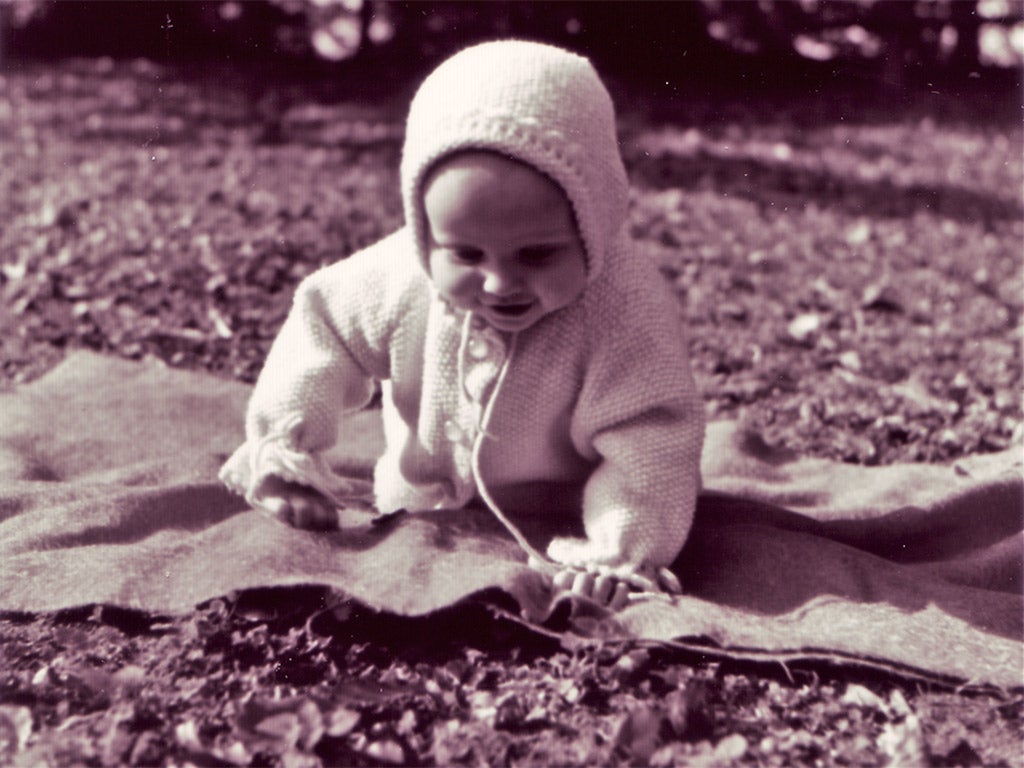
She found agonising solace in her work as a nursery school teacher and in the lives of other families. “I wanted to do the best work for the children,” she says. Alone at home, she wrote letters and made phone calls. Two years after the abduction the Norwegian consulate in New York found Herbert and a date was set for a custody hearing. Nerby flew to America full of hope. For a trial period, she would be allowed to see her daughter twice a week. Herbert’s lawyers argued that, Sarah-Cecilie, now six, needed chaperones from the Jewish community to make her comfortable. Instead, their presence heightened the girl’s fear of this stranger from Norway. “I remember just being frozen with terror,” she says.
For the first two meetings Nerby tried to reach Cecilie behind the fearful face of Sarah, a girl she thought she knew. At the third meeting, she waited. And waited. And nobody came. Herbert had packed up his car and fled the city, abducting his own daughter for a second time. Nerby stayed in New York for several months, walking the streets in a futile search for her daughter. Before Christmas that year she had to return to Oslo alone, to resume a desperate life of letter writing and longing.
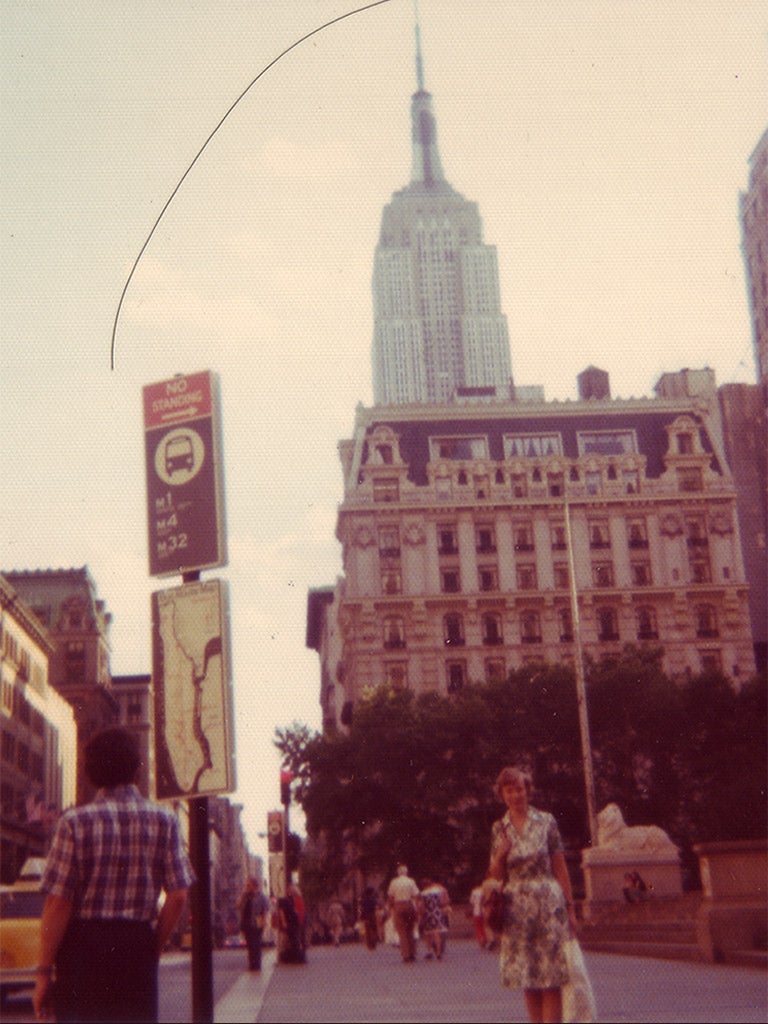
Herbert travelled across North America with his daughter, finding shelter in Jewish communities and becoming ever more paranoid and deluded. Sarah became Max for a time, with short hair and boys’ clothes. Chicago, Phoenix, Miami – in the following 10 years, she would not call anywhere home for more than a few months, and her education and sense of identity suffered. “Who knew there was an Orthodox community up in the hills of Tijuana?” she says.
Sarah-Cecilie approached adolescence as a damaged and very religious child. Her anxiety only intensified. She developed an eating disorder and attempted suicide. When she saw herself on the milk carton, she was too fearful to do anything about it. “The threat all along was: ‘If you’re found and taken back to your mum, you’ll lose your religion and your culture and I’ll have to go to jail – you’ll lose your father’,” she recalls. “That was the message, on and on.” At around the same time, Sarah was sexually abused by a friend of her father. “I was more aware of just how upside down things really were, and questioned my father more, which led to fights and great conflict. He had a very hard time dealing with my sense of independence and desire for answers.”
He slowly turned her against her own mother in what would become a one-man religious cult
Later, when Sarah-Cecilie was 15, Herbert agreed to marry her off to an Israeli man twice her age. The man would take her to Israel to start a new life, indirectly still under her father’s control. But she refused and a year later she left Herbert and returned to New York, to live with friends. Here, seeds of doubt took root. “I felt this deep yearning and curiosity, this pull,” she says. “I needed to know who my mother was.”
Help came from an unexpected source. Sarah-Cecilie and Nerby had known Herbert’s sons from his previous failed marriage, but they did not know that his first move from New York to Norway, where he then met Nerby, had also been a parental abduction. His sons, Albert and Steve, escaped and returned to their mother in New York. They found reconnection with her difficult, and then felt abandoned by their father when he disappeared with Sarah-Cecilie. In 1979, Steve slipped and fell while drunkenly climbing a mountain in a storm. “He was 19 and very troubled,” Sarah-Cecilie says. “I think he felt some guilt about not letting my mother know that my father had been planning to take me. What he did affected so many people.”
Years after his brother’s death, when Sarah-Cecilie had fled to New York, Albert was able to do something. He found a phone number for his stepmother and gave it to Sarah. When she was 17, she found the courage to call her mother out of nowhere. After a few rings, Nerby picked up the phone. “I was so shocked,” she says. “I remember I just asked you: ‘How are you?’”
“I think I just said, ‘oh, I’m fine’,” Sarah-Cecilie says.
Hours later, Nerby was on a flight to New York. And in many ways what follows was a happy ending. Today Sarah-Cecilie and her mother are warm, delightful people with an obvious, deep bond. But it was not an easy ending. “We didn’t know each other and had so much pain and insecurity, yet we were so intimately connected,” Sarah-Cecilie says. They both describe still walking on eggshells at times,. “If there’s any conflict we get scared, it brings up fears,” Sarah-Cecilie says. “Those years caused so much damage.”
Sarah-Cecilie continued to suffer depression in her twenties and spent time in hospital. She could not trust men and only found love aged 30, when she met John, a librarian who is now her husband. A year after they met, the shock of 9/11, which they watched from their garden, inspired a move to Norway, where they lived for 10 years and had two sons, Aidan, now nine, and Daniel, who’s five. Her proximity to her mother helped to repair their relationship. Nerby enjoyed cooking the fish meal she had never been able to serve that Easter in 1974. “I’m very good at it,” she says, smiling.
Sarah-Cecilie and her family have now settled in Long Island, where she is writing a memoir. In 2008, during a visit to New York, she met Herbert in a Brooklyn pizzeria for the first time since she left him, aged 16. “I wanted him to meet his grandson but I was determined that I would never see him again after that,” she says. “I wouldn’t attend his funeral and I wouldn’t even care. Good riddance. I was pretty angry.” He moved to Israel. She says she had considered pressing criminal charges against him, but she couldn’t go through with it.
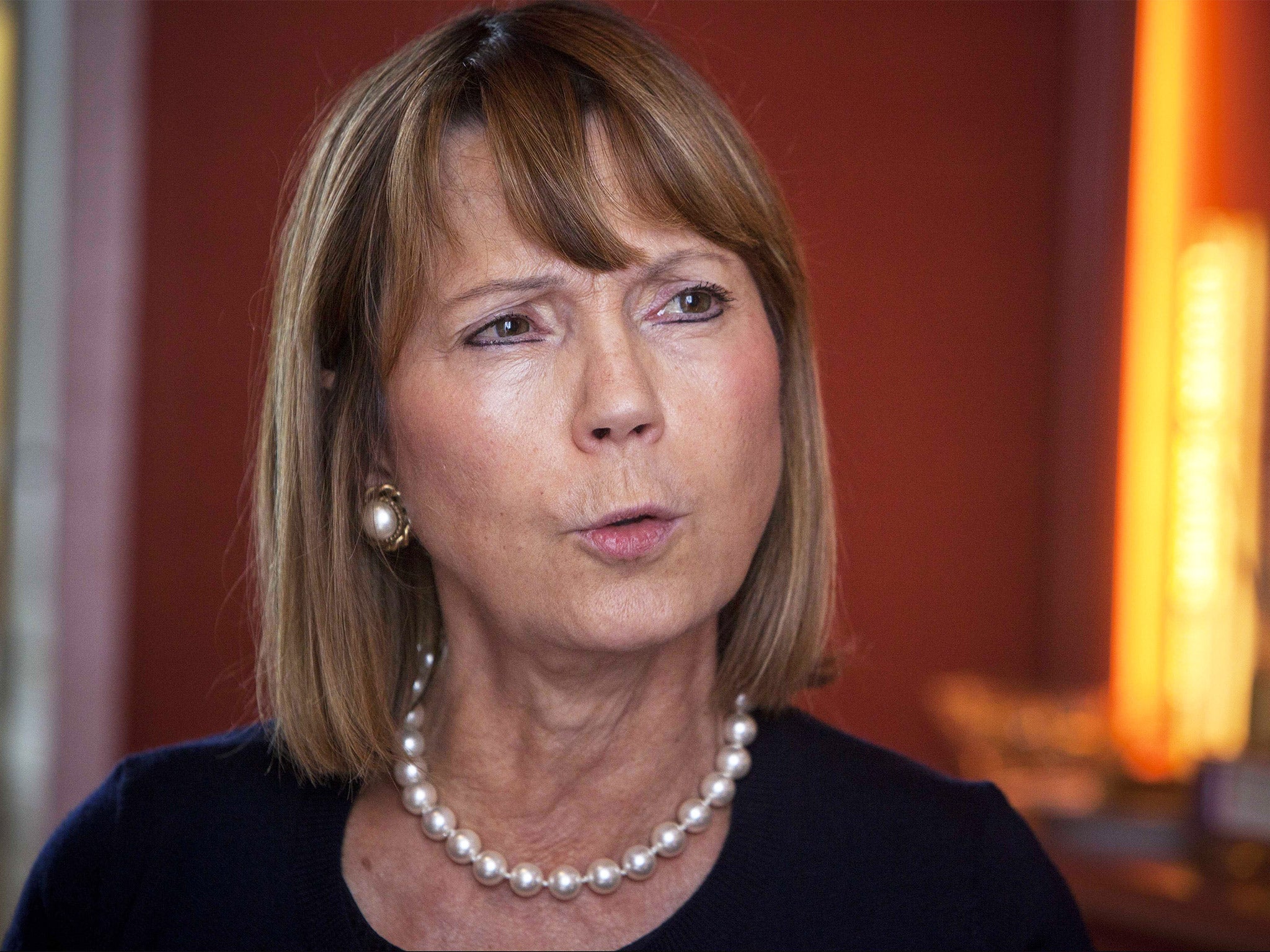
Her second son and her work with Pact softened Sarah-Cecilie’s feelings. She felt it was important to include her father in the film, but he said he would only talk to her and not directly to the camera. “I said, ‘OK, I’ll go to Jerusalem and interview him’,” she says. “It will be empowering.” In the film, Herbert, now 84, is an old man who shuffles in and out of a dirty apartment. A single-bar heater keeps him warm. “When we first saw each other we both burst into tears and gave each other a warm hug. It was beautiful in a way but it wasn’t easy,” she says. “We had some big fights and I pretty much broke apart afterwards.”
She says her father still doesn’t seem to understand the wrongs or consequences of what he did, and has mental health problems. She has some sympathy him, but has she forgiven him? “It’s a difficult word,” she says. “I think I’ve come to terms with who he is.” She had not told him about the film screening, but, by coincidence, he had called her twice that evening. What did he want? “I didn’t pick up the phone,” she says. “Our relationship is on my terms now.”
Calls are more frequent to Oslo, where Nerby lives alone but speaks to her growing family almost daily. She says she had no energy to meet another man. As she and her daughter laugh about what a happy granny she is, Nerby’s voice suddenly drops and she turns to her daughter. “I want you to…” she pauses. “I want you to tell the children about your father’s good sides. Be open about it, that he did something wrong, but that he had good sides. Because it is important to know the truth.”
pact-online.org
Join our commenting forum
Join thought-provoking conversations, follow other Independent readers and see their replies
Comments
Bookmark popover
Removed from bookmarks